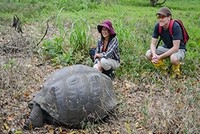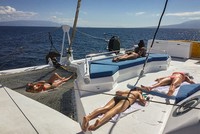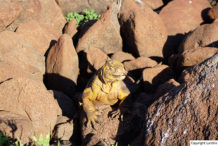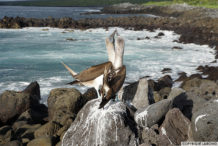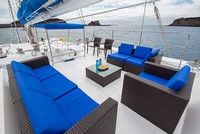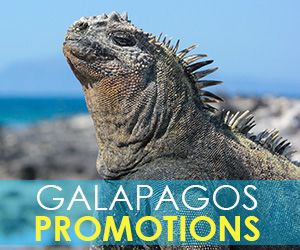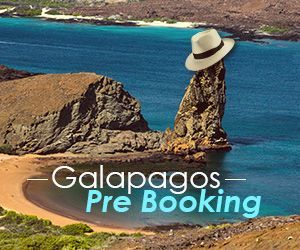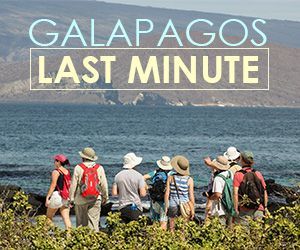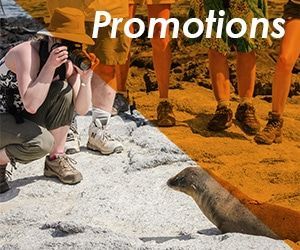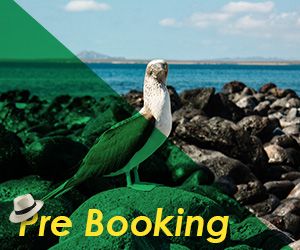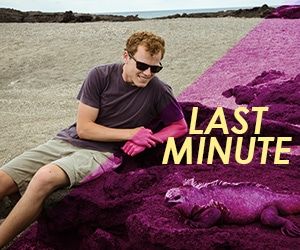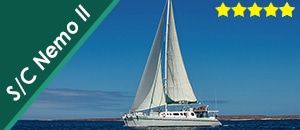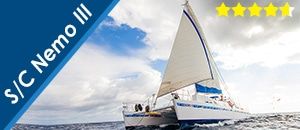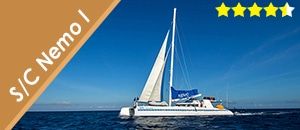Vacations in Galapagos Islands
Searching for the best rated Galapagos tour agent? Travel with us. Recommended in Booking.com. Get the greatest traveling experience. The top rated company, many choices, high level accommodations, skilled guides. All Inclusive vacations, every month of the year. Vacations in Galapagos Islands.
The Galapagos, positioned around 600 miles west of the region of South America, is possibly the best spot to see evolution in all of its natural splendor.
Named, in Spanish, after the species that is definitely the most famous of the island archipelago: The Galapagos Tortoise; the Galapagos offers quite a few clusters of little dainty islands all of which are created of below surface volcanoes eruptions.
Situated on the equator, the Galapagos gets all the rewards of such a global position because all the 16 islands have bright and sunny weather conditions throughout the year! If that wasn’t sufficient they are on the crossroads for 2 really important trade winds: The North East trade winds (from North and the South East trade winds (coming from South America). All these winds are most likely precisely what started the influx of sustainable life around the island chain – and are considered to have been the agent responsible for the large woods spreading over the higher mountains of the islands.
These island of significant natural charm have resulted in the evolution of numerous varied, and extremely distinctive, habitats which have in turn helped (or even enforced) the native wildlife, both plant life and animals alike, to evolve in ways that quite simply has many experts surprised.
The rest of the Galapagos island chain is yet another place of distinctive, inter-dependent, as well as pretty spectacular wildlife.
When is the perfect time to see the Galapagos?
It is a regularly asked question: When is the best time to go to Galapagos? There are a number of answers, depending on what you want out of your Galapagos trip. If you want to see the mammals and reptiles the Galapagos Islands are famous for, you may want to consult this calendar to help you plan your journey.
Just like the birds, the mammals and reptiles in Galapagos follow certain phases of reproduction and other life functions. These behaviors vary during various moments of the year and also from island to island. For example, if you want to find the glowing red-and-green “Christmas Iguanas” of Española, you ought to go in December or January.
The Galapagos Islands are possibly the most famous wildlife-watching destination on the planet.
This remote archipelago is a land of stark lava formations, cactus forests, lush green highlands, turquoise bays and quintessential tropical beaches. But, on top of that, it’s overflowing with wildlife at every turn. Within minutes -sometimes moments- of landing on this dot in the center of the Pacific Ocean, you may be face-to-face with more strangely adventuresome and curious creatures than anywhere else on Earth.
Roughly 620 miles from the coast of Ecuador, and slap-bang around the equator, Darwin’s “Enchanted Isles” consist of a bunch of 13 “appropriate” volcanic islands (bigger than four square kilometers) and six smaller islands along with at least a hundred islets. Every one has its own unique atmosphere, distinctive landscape and inimitable wildlife.
You can view everything from penguins living in the tropics and boobies with glowing blue feet to tool-using woodpecker finches and male frigate birds turning their wrinkled throat sacs in to extraordinary, fully inflated red balloons. One day you might be watching time-worn giant tortoises from the misty highlands, and the next you could be snorkeling with playful sea lions from crystal-clear water. You could be sunbathing on black lava rocks next to prehistoric-looking marine iguanas or sitting with waved albatrosses as they perform their bill-circling, swaggering courtship displays (they seem quite like Samurai warriors performing Lord of the Dance).
There is nowhere else quite like it.
All this said, 170,000 tourists visited the Galapagos past year therefore, unsurprisingly, it’s beginning to feel a little cramped. It is a high-profile place and lots of people wish to see it. The consequence of this kind of onslaught is that wildlife tourism is more closely controlled from the archipelago than anyplace else in the world. You’re only allowed to see tiny pockets of the federal park, so you can disembark (from small ships) only at designated landing spots, you must walk only on clearly marked paths in only disciplined small groups, and you must come with local certified guides. Regulating tourism with such military efficiency might feel extreme, but it’s vital under the conditions. In the end, however, there has to be a limit and at the not-too-distant future, visitor numbers will have to be capped.
Floreana Island Cruises are exciting and filled with life. It’s just a little island with several names, but by any of them, it is amazing adventure cruise destination. It’s English name is Charles, but guests from all over the world know it as Floreana: the home of Post Office Bay and also the Devil’s Crown formation. That’s a puzzle that is intriguing and educational to explore. It is known as possibly the very best from the Galapagos, a very major claim taking into consideration the quality of snorkeling in all areas in the Galapagos Islands. Best things to do and see in Floreana Island.
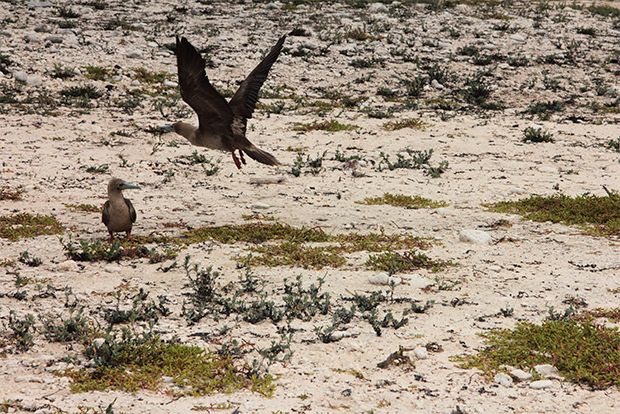
The place has its name from a geographical formation- a volcanic crater that the waves have eroded over time in such a manner in which the northern and southern sides jut in the water like spikes on a crown. The coral reef in the center is filled with Floreana marine life. Your little ship cruises crew will stop so you can frolic in the waves one of the animal inhabitants.
Punta Cormorant is a remarkable location where guests can observe a large flock of flamingos against the unusual backdrop of this ‘green beach.’ A top composition of olivine crystals from the sand gives the striking color. Other birds seen frequently at Punta Cormorant are typical stilts along with white-cheeked pintails. Guests can delight in a dinghy ride or brief 2km increase at the site. The ship will make a wet landing.
Bring your sailing equipment for the dinghy ride in Punta Cormorant in case you have any. The crew has gear as well, however a set of sunglasses and appropriate head covering will help protect you from the components. As soon as you create property, you’ll need a comfortable pair of sneakers to walk around the island, particularly in the event that you’re planning to hike. A little pack is just another fantastic idea to store your equipment and clothing layers in case of a change in weather. As usual, your smart phone or a camera is very important to have available, so you can talk about the sights of Floreana with everyone back home. If you’ll be bird watching on Floreana, a bird guide is a handy companion for identifying species.
Galapagos Facts
Abundant wildlife, visitors can get up close and personal to some of the planet’s rarest animals. The convergence of three important oceanic waters flow brings an unbelievable mix of marine life into Galapagos. The endemic Galapagos marine iguana is known as the only lizard able to float in the ocean. Darwin’s research in Galapagos resulted in the revolutionary book of The Origin of Species.
In 1978 UNESCO designated Galapagos since the very first World Heritage site. The movie Captain and Commander was filmed on the islands of Bartholomew and Santiago. The name ‘galapagos’, a classic Spanish word for ‘saddle’, was initially used by Bishop Tomas and his crew to describe the giant tortoises but the name stuck. Due to the early existence of both English and Spanish inhabitants in Galapagos, the Islands now have both English and Spanish names.
During the five weeks that he spent there, he went to collect plants, rocks, insects and birds. He observed the odd life forms and their adaptations to the harsh environment. He noted that it had been possible to differentiate which island that a tortoise came from by the form of their own shell. His most well-known research is of the several species of finches that prompted his revolutionary theory The Origin of Species, published in 1859.
GALAPAGOS CRUISES 2024
NEMO 3
| DEPARTURES | ITINERARY | AVAILABLE CABINS | SPACES | |
|---|---|---|---|---|
| There aren't available dates for the selected dates |

